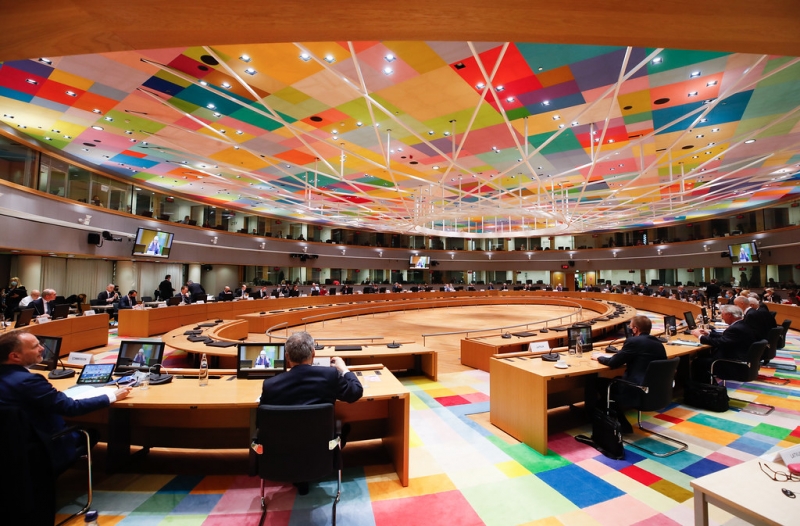On 22 March 2021, the European Union’s Foreign Affairs Council met in Brussels for a discussion on developments in Georgia, the relationship between the EU and Russia, and the EU’s Southern Neighbourhood. Ministers also held an informal exchange with the United Nations High Commissioner for Human Rights with a view to strengthening cooperation between the EU and the United Nations on questions related to human rights.
Raising the topic of the state of affairs in Georgia, the Latvian Minister of Foreign Affairs, Edgars Rinkēvičs, welcomed the mediation of EU representatives to reduce the political tension in the country. The EU should send a clear signal to both the government of Georgia and the opposition on the need for seeking a way out of a political stalemate, the Latvian Foreign Minister said. According to the Latvian Foreign Minister, the EU should continue being engaged in resolving this political crisis.
In a discussion on relations between the EU and Russia, Edgars Rinkēvičs underlined that Latvia awaits decisions by the European Council on this matter which will demonstrate Europe’s support for civil society in Russia. From Latvia’s perspective, current EU policy vis á vis Russia which incorporates sanctions and a circumscribed dialogue should be continued.
During the Foreign Affairs Council, EU Foreign Ministers also held an informal exchange with the United Nations High Commissioner for Human Rights, Michelle Bachelet Jeria. In the discussion, Edgars Rinkēvičs noted that the increasing human rights abuses in separate UN member states should be further addressed, including by ensuring an international framework to document and effectively investigate such offences. The EU and its Member States should, amongst other things, jointly consolidate and reinforce a multilateral approach to human rights matters in order not to allow for any weakening of the role of the Office of the High Commissioner for Human Rights (OHCHR).
The Latvian Foreign Minister expressed concern about the deteriorating human rights situation in Russia, where the work of independent journalists is being increasingly constrained, members of the opposition and civil society activists are being arrested and the rights of the LGBT community are being brutally restricted in Chechnya. In the Minister’s opinion, these issues should be tackled jointly, the OHCHR working together with the Council of Europe and other human rights organisations. A similar approach should also be applied to Belarus and China, where problems have been observed with respect to the upholding of human rights.
The Foreign Affairs Council also shared views on the Southern Neighbourhood and discussed priorities for the EU’s cooperation with its southern neighbours. The Latvian Foreign Minister expressed support for EU initiatives aimed at promoting resilience and stability in the Southern Neighbourhood in order to help address social inequality, the spread of conflicts, migration and other pressing issues. It is vital for the European Neighbourhood Policy to strike a balance in the EU’s engagement with its eastern and southern neighbours, said Edgars Rinkēvičs.





